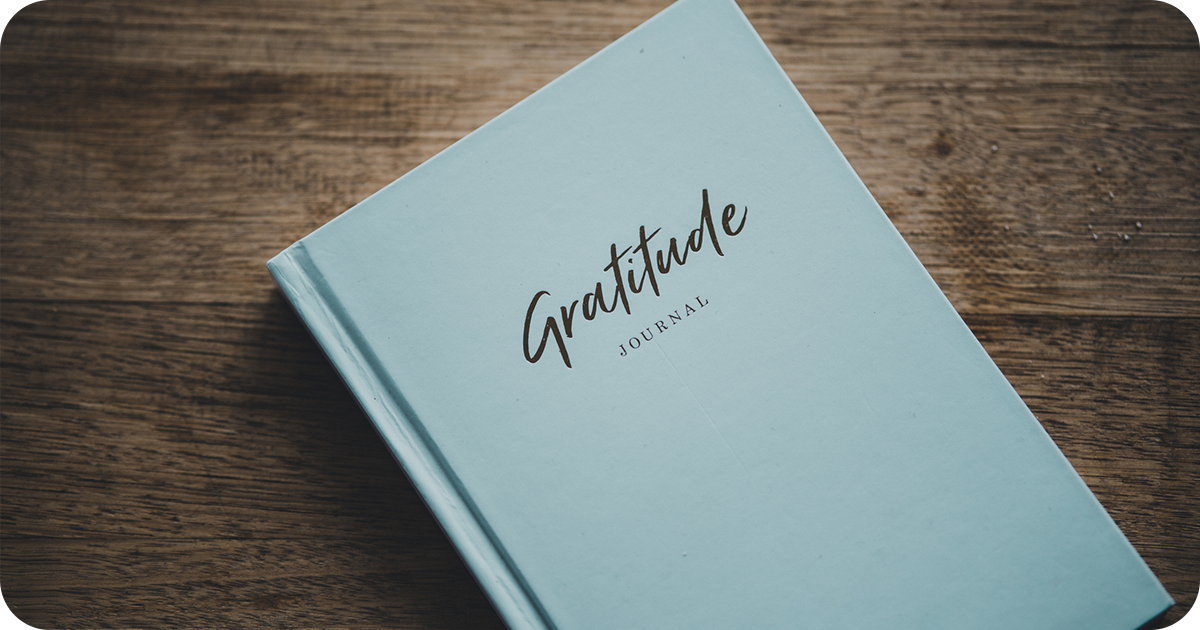Balancing the mind, body, and spirit are ideal ways to help you maintain a greater harmony on your path to overcoming addiction. This method takes a holistic approach, balancing the body through healing the mind and body and garnering a greater spiritual connection. The holistic approach isn’t just a way to heal, but it is a way of life to help each person find harmony and peace within themselves.
What Does It Mean to Achieve Balance in Recovery?
Balance in recovery refers to achieving a holistic balance among your mind, body, and spirit. To maintain the holistic balance in recovery, you must heal and support all three aspects of body, mind, and spirit. The body’s physicality must be considered, and addressing aspects like nutrition, activity levels, hobbies, and relaxation methods are vital to the healing process.
Preparing your mind is another essential part of balancing yourself in recovery. To fully heal, you must be ready to feel better and heal the wounds created by addiction. Additionally, you must find positive ways to engage your mind. Using relaxation techniques, breathing exercises, or practicing a sport or hobby are all ideal options.
Finally, balance in recovery is also about spirit and connecting with your inner self and essence.
Feeling connected to who you are, your purpose in life, and your identity can significantly impact how your recovery progresses.
How Do You Measure Balance in Recovery?
It may be easy for you to find moments of imbalance in your life, but it’s essential to remember that these moments are not representative of the whole picture and the progress you’ve made. It can be challenging to learn to cope in healthy ways after going through addiction. In fact, many people find it hard to deal with the daily highs and lows of life without abusing substances.
While you cannot avoid painful feelings, you can work toward learning how to cope with painful feelings more easily and in a positive way. If you can continually work toward balance in your life, you will make progress toward long-term recovery every day. Here are some ways you can calculate balance and help keep track of your progress.
Make a List of Accomplishments
Think about what you have accomplished in your recovery so far. Write a list if you feel so inclined. This can help you look back and see everything you’ve accomplished. It is especially significant to look back on this list if you’re ever feeling down about your progress.
Set Goals Often
Another way to help you calculate the balance in recovery is to set goals and set goals often. Setting goals and completing them can help you measure your accomplishments toward balance as well. For example, maybe you want to try new mindfulness practice for three days this week. No matter your preferences, set a goal and reward yourself when you accomplish it.
Stay Up to Date on Your Progress
Keeping a journal is a wonderful way to track what you’re eating, how you’re feeling, any notable thoughts you’re having, your accomplishments, and more. A journal is also a great way to look back and review the progress you’ve made over time. You can remember where you started and see how far you’ve come.
Lifestyle Changes for Long-Term Recovery

To help your recovery keep progressing in the right direction, you’ll need to make some positive lifestyle changes that address your mind, body, and spirit. Lifestyle changes can be hard to stick to, but there are ways to remain persistent and work toward balance. If you’re trying to change more than one aspect of yourself, it can seem overwhelming to stay consistent and follow through. However, making a lifestyle change requires you to have grace with yourself and create a plan that is doable for you. American Psychological Association. (n.d.). Making lifestyle changes that last. American Psychological Association. Retrieved April 12, 2022, from https://www.apa.org/topics/behavioral-health/healthy-lifestyle-changes
Try to focus on one piece of your behavior at a time to help you avoid feeling overwhelmed or becoming inconsistent with your progress. Another great way to stick with your lifestyle changes is to set up a sound support system to help you when you need someone to cheer you up or aid you in dealing with cravings. Never be afraid to ask your support system for help if your coping skills aren’t giving you the relief you need. Take a look at these ten lifestyle changes.
1. Stick to a Schedule
Sticking to a schedule overall has many health benefits for your mind and body. It reduces your stress levels because you have a plan for your day. Northwestern Medicine. (n.d.). Health benefits of having a routine. Northwestern Medicine. Retrieved April 12, 2022, from https://www.nm.org/healthbeat/healthy-tips/health-benefits-of-having-a-routine Better sleep is another great outcome of sticking to a routine. It helps the mind and body recover each day the way it needs to be able to function at a high level. Routines also have a fantastic effect on eating schedules and nutrition. Getting into an eating routine often means overall better eating habits.
2. Practice Mindfulness and Meditation
Practicing mindfulness and meditation is a beautiful way to maintain a healthy mind. Meditation can assist in coping with emotions, which, in turn, can help reduce stress levels and increase immunity. Wu, R., Liu, L.-L., Zhu, H., Su, W.-J., Cao, Z.-Y., Zhong, S.-Y., Liu, X.-H., & Jiang, C.-L (1AD, January 1). Brief mindfulness meditation improves emotion processing. Frontiers. Retrieved April 12, 2022, from https://www.frontiersin.org/articles/10.3389/fnins.2019.01074/full This is a great way to practice self-care to reduce any anxiety, especially around your recovery.
If you feel like you’re not making any progress, meditation and mindfulness provide a great way to regroup and find a new perspective on whatever you may be going through at the time. Even 10 to 15 minutes of mindfulness and meditation per day can make a big difference in how you’re feeling on a regular basis.
3. Keep a Health Journal
As mentioned, keeping a journal is a great way to balance the overall health of your mind and soul. Manage stress, anxiety, and depression by journaling your thoughts, symptoms, and positive happenings of your life. Smith, Joshua. Online Positive Affect Journaling in the Improvement of Mental Distress and Well-Being in General Medical Patients With Elevated Anxiety Symptoms: A Preliminary Randomized Controlled Trial. National Library of Medicine. Oct/Dec 2018. https://www.ncbi.nlm.nih.gov/pmc/articles/PMC6305886/ This can assist with problem-solving, introspection, connection to self, identity, and more.
Your journal can also have a significant effect on your physical health if you are dealing with chronic health issues. Journaling can help you track your symptoms to assist your care team in diagnosing and treating you. The best way to journal is to practice it every day and to write whatever comes to your mind, making it easy for yourself. Take a moment to breathe as you write with a cup of coffee or your favorite herbal tea. Make this a daily self-care experience for yourself.
4. Exercise Regularly
Exercising regularly has both immediate and delayed positive effects on your mental and physical health. Some of the direct effects of exercise are decreased anxiety and increased cognitive ability. Anderson, Elizabeth. Effects of Exercise and Physical Activity on Anxiety. National Library of Medicine. April 2013. https://www.ncbi.nlm.nih.gov/pmc/articles/PMC3632802/ Regularly moving your body can help with weight management and overall physical strength over time as well. This leads to widespread resistance to injury and disease, keeping your overall physical health in check.
If you want to live a long, happy life, exercising regularly can assist with getting you there. Physical exercise is also a great stress reliever for when you’re dealing with thoughts in recovery that may be displeasing or bring you to a low point. Focusing on being active can help improve your mindset in these cases.
5. Nourish Your Spirituality
Spirituality can help you understand your life’s meaning and purpose in the world. Journaling for mental health. Journaling for Mental Health – Health Encyclopedia – University of Rochester Medical Center. (n.d.). Retrieved April 12, 2022, from https://www.urmc.rochester.edu/encyclopedia/content.aspxContentID=4552&ContentTypeID= Building a greater understanding of your purpose often leads to a relationship with a higher power, which can change the way you view the meaning of your life.
Spirituality gives people something to believe in that is bigger than themselves, and studies show that it can help with reducing depression and can be beneficial to the recovery process. A greater connection to spirituality can also lead to a deeper bond with others, giving you a place to belong in the world and socialize. Find a greater connection to yourself and others while balancing your spirit and try to nourish your spirituality.
6. Eat Well and Hydrate
Eating well has overall benefits on your physical and mental health. Both your physical and mental health relies on you eating throughout the day and consuming healthy and nutritious foods. Not eating properly can affect your mood and have adverse biological effects on your body, such as feelings of fatigue.
Hydrating properly contributes to your all-over physical health as well. Since humans are made from about 80% water, when you don’t drink enough water, it can cause poor digestion, daily headaches, dry skin, weight gain, and dry mouth. Centers for Disease Control and Prevention. (2021, November 1). Benefits of physical activity. Centers for Disease Control and Prevention. Retrieved April 12, 2022, from https://www.cdc.gov/physicalactivity/basics/pa-health/index.htmYou may not realize the effects that your current eating and drinking habits are having on you physically. But, making eating well and hydrating one of your priority lifestyle changes can have incredible holistic benefits on your body.
7. Record Your Gratitude Daily

Gratitude is a fail-proof method to feeling more joy daily. Spend at least 10 minutes at the beginning or end of your day thinking about all you are grateful for in your life and writing a list or journal entry about it. You will find yourself taking inventory of all the positive aspects of your life, which bring you more feelings of joy and happiness. Satisfy your mind and soul by keeping a journal of your gratitude every day. If you’re ever feeling down, you can always come back to this journal to look at your inventory of blessings.
8. Nurture Healthy Relationships
Nurturing healthy relationships can allow you to build a wonderful community and support system for yourself. A community assists you in feeling like you belong in your environment, and it creates a feeling of being a part of something greater than yourself.
Building more healthy relationships can create a greater support system for yourself, too. Your support system provides a backup line of help anytime you are feeling down, anxious, or struggling with your recovery. Finding someone you can really trust with your struggles is a crucial part of long-term recovery.
9. Know When You Need Help and Ask for It
Struggling on a mental and physical level with your recovery will get extremely difficult at times, but it’s vital that you ask for help during these points. Get in the habit of assessing your current situation, and if you are having a tough time coping with your feelings on your own, it’s a good idea to phone your support system or community.
Asking for help can also mean asking for professional assistance. You may find that the recovery process is too difficult for you to handle on your own or even with your support system. This is an excellent time to call in professional support.
10. Give Back by Volunteering in Your Community
Giving back by volunteering in your community can help support your overall sense of purpose in the world and bring you joy. Usually, volunteering gives people a feeling of contentment, knowing they are doing something for the greater good. Volunteering can also be an easy way to get out and meet people, allowing you to add more people to your support system and continue to build your community. Ultimately, having a great support system and community will be an integral part of your long-term recovery.
Recovering With Balance

Keeping a mind, body, and spirit balance heals the body on a holistic level, helping you with your long-term recovery. Calculating your progress by balancing these aspects isn’t as easy as using a measurement system, but doing activities like journaling, goal setting, and making a list of your accomplishments can help you track your progress. There are many great ways to help you make lifestyle changes for your long-term recovery, and if you find yourself getting lost in the process, remember to reach out to your support system or a trained professional.
We believe that with support, individuals have a better chance of getting and staying sober. We work on healing and developing new life skills for adults suffering from substance abuse disorders as well as psychiatric, mental health issues and psychiatric disorders.

